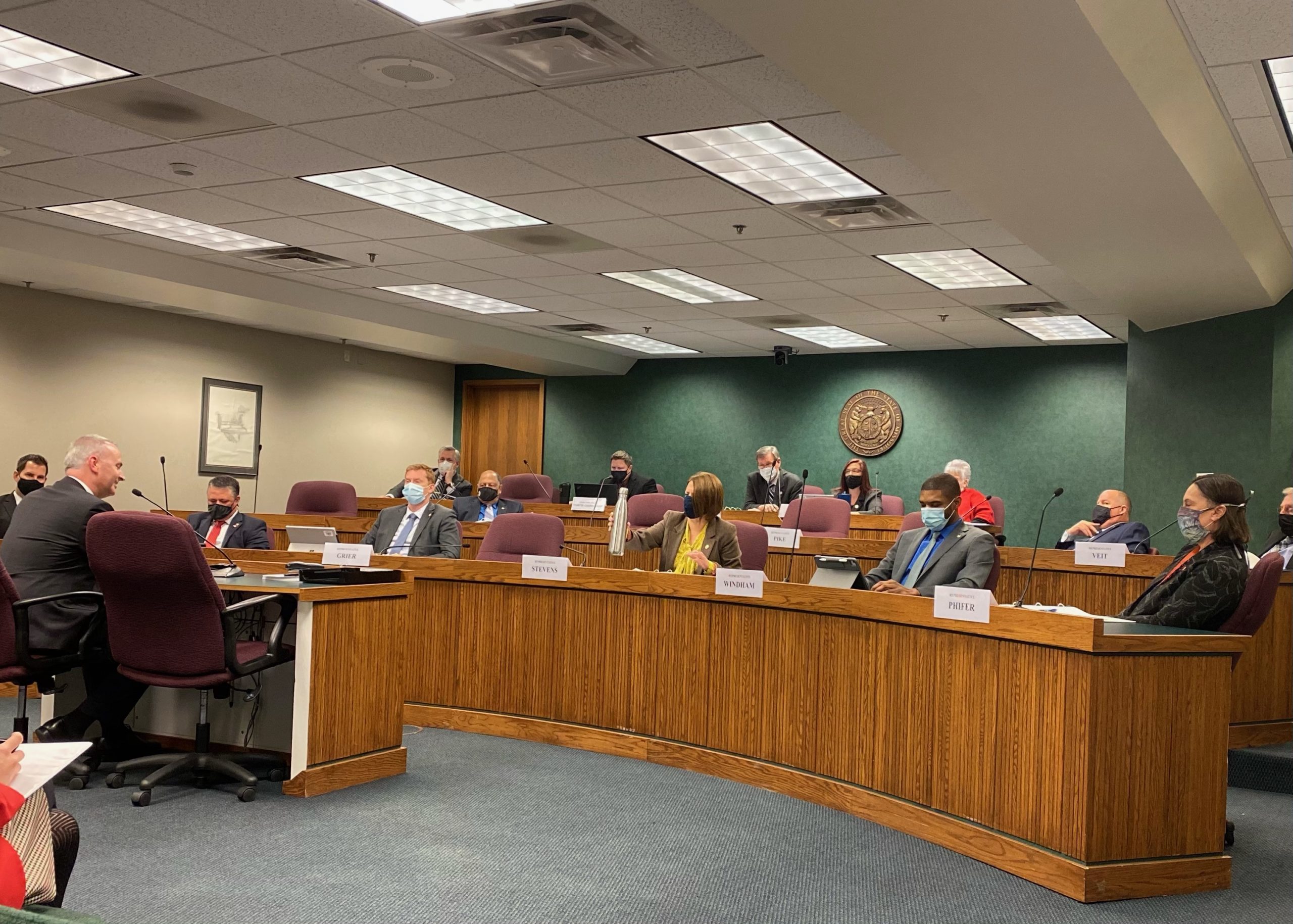JEFFERSON CITY, Mo. — A bill that would pause caps on tuition increases for the next five years is seeing contention in the lower chamber.
The cap was initiated by a sweeping higher education reform bill passed in 2007. Under the bill, in-state tuition increases were capped at the change in annual prices measured by the Consumer Price Index. Institutions seeking a larger increase must apply for a waiver through the Missouri Department of Higher Education and Workforce Development (DHEWD). HB 856, sponsored by Rep. Doug Richey, would eliminate the cap for public institutions for the next five years before the bill’s sunset in 2027.
“What you have in front of me is the result of my thinking through where we are at in terms of higher ed,” he said. “We’ve seen similar conversations and situations emerge regarding higher education and costs associated with it, deferred maintenance issues, and I was trying to think of how we can navigate these waters, and this came to mind as one of the tools in the toolbox that would help our universities.”
Richey presented the bill before the House Committee on Higher Education Monday afternoon, saying the caps forced institutions to enact separate fees and costs in order to account for decreased funding. Rep. Barbara Phifer spoke against the bill, positing that removing this cap could lead to unfair price gouging for lower-income Missourians.
“Public education is for the public,” she said. “These 18-year-olds need support and help, and to sit and talk about the organic market is not who we are; we’re here as legislators for the people of the state of Missouri. The effect of this would be that poor people get poorer and wealthy families get wealthier.”
Dustin Schneider, director of government relations for the University of Missouri System, said the bill would increase transparency and allow institutions to compensate for rising costs without having to enact new fees and go through additional governmental barriers.
“If this bill would go into effect today, we would be able to move our tuition into a differential tuition and the fees would go away,” he said. “It would be more transparent for the students and their family members… Since SB 389 was passed, Missouri has ranked last in-state tuition support for students.”
Schneider said his own institution ranked 200th in the country last year for state assistance, while it ranked in the top 100 in 2005 before the bill was enacted.
The committee did not take action on the bill Monday.

Cameron Gerber studied journalism at Lincoln University. Prior to Lincoln, he earned an associate’s degree from State Fair Community College. Cameron is a native of Eldon, Missouri.
Contact Cameron at cameron@themissouritimes.com.






















